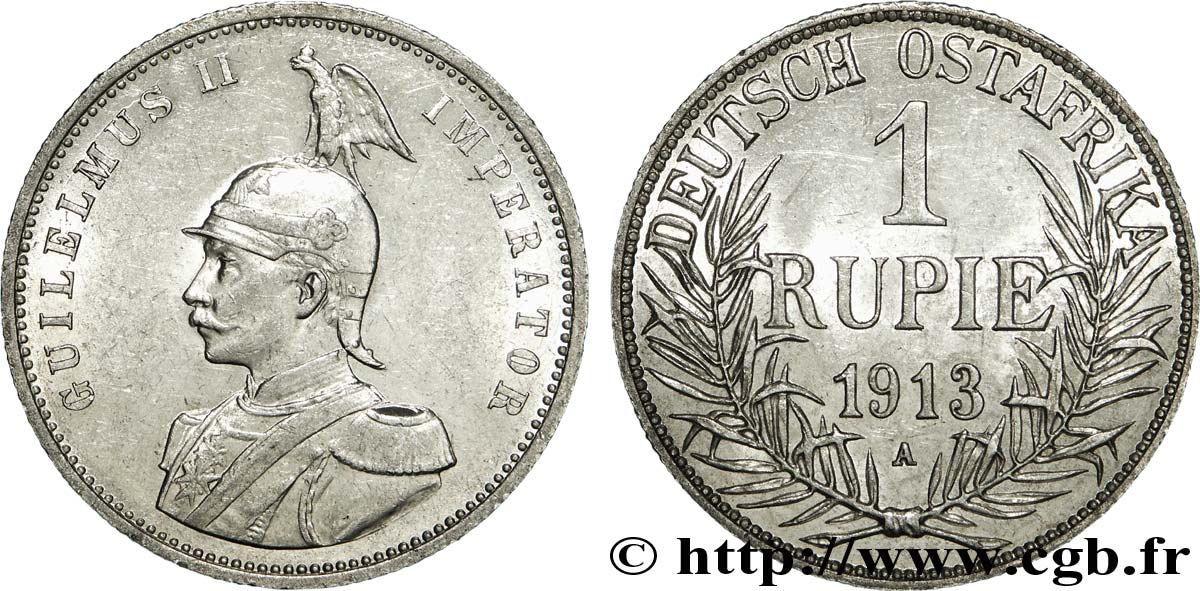v39_1064 - GERMAN EAST AFRICA Eine Rupie 1913 Berlin
MONNAIES 39 (2009)
Starting price : 200.00 €
Estimate : 300.00 €
Realised price : 330.00 €
Number of bids : 2
Maximum bid : 332.00 €
Starting price : 200.00 €
Estimate : 300.00 €
Realised price : 330.00 €
Number of bids : 2
Maximum bid : 332.00 €
Type : Eine Rupie
Date: 1913
Mint name / Town : Berlin
Quantity minted : 400000
Metal : silver
Millesimal fineness : 917 ‰
Diameter : 30,55 mm
Orientation dies : 12 h.
Weight : 11,65 g.
Edge : striée
Coments on the condition:
Superbe exemplaire qui, sans de petites marques de manipulation et des hairlines dans les champs, serait mieux gradé. Une grande partie du brillant d’origine est présente. Fine patine grise de collection
Catalogue references :
Obverse
Obverse legend : GUILELMUS II IMPERATOR.
Obverse description : Buste cuirassé de Guillaume II à gauche.
Reverse
Reverse legend : DEUTSCH OSTAFRIKA.
Reverse description : Au centre, dans une couronne de palmier, 1/ RUPIE ; en-dessous le millésime et la lettre d’atelier.








 Report a mistake
Report a mistake Print the page
Print the page Share my selection
Share my selection Ask a question
Ask a question Consign / sell
Consign / sell




